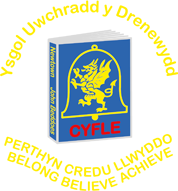WBQ NC
Introduction:
The Welsh Baccalaureate is a qualification designed to give student the opportunity to develop essential and employability skills. Learners prepare for their future by developing skills, attitudes and behaviours through practical challenges. Through the Welsh Baccalaureate learners will raise their skills levels and confidence, enabling and
empowering them to take their place as responsible and active citizens within a diverse society.
Alongside and through the development of skills, the Welsh Baccalaureate provides learners with
the opportunity to develop their knowledge and understanding of society, the community in which
they live and an awareness of global issues, events and perspectives.
Skills developed:
The Welsh Baccalaureate is a GCSE based on 3 skills challenges designed for students to explore and develop the seven skills considered essential for future employment or education.
- Literacy
- Numeracy
- Digital Literacy
- Planning and Organisation
- Critical thinking and Problem Solving
- Personal effectiveness
Challenges covered:
|
GCSE (Year 10 and Year 11) |
A Level (Year 12 and Year 13) |
Develops learners’ skills, through carrying out a referenced research activity in an area of personal interest or one that reflects future educational or career aspirations.
This is a team challenge to be as creative as possible to develop a business proposal and present a ‘Dragons Den’ pitch whilst
Gives the learners and opportunity to research a global issue and raise awareness of the issue and possible solutions by preparing an artifact to be presented at a conference.
|
|

